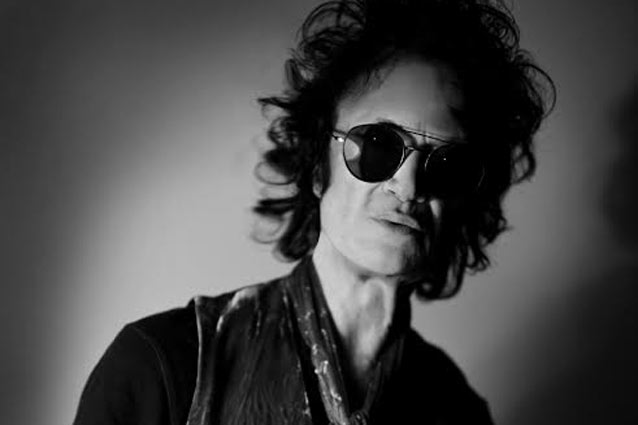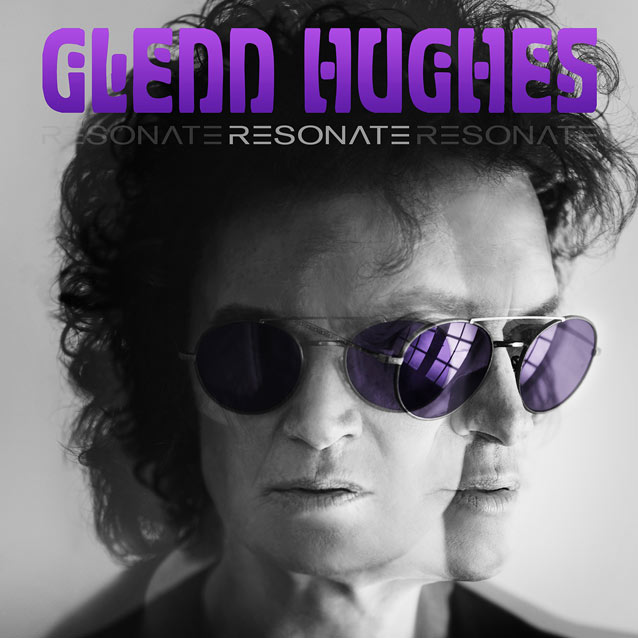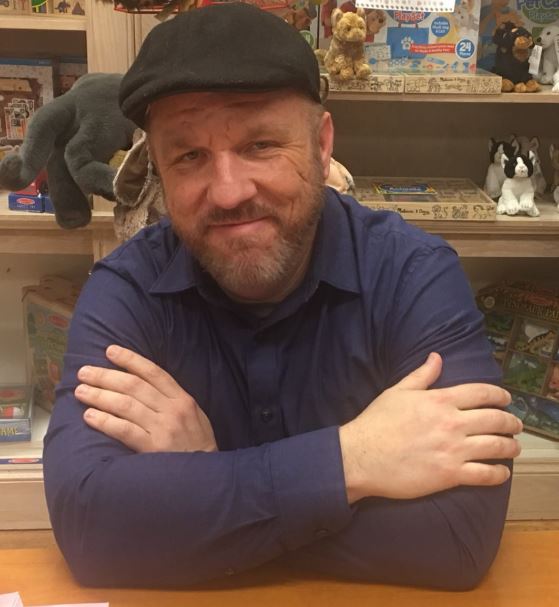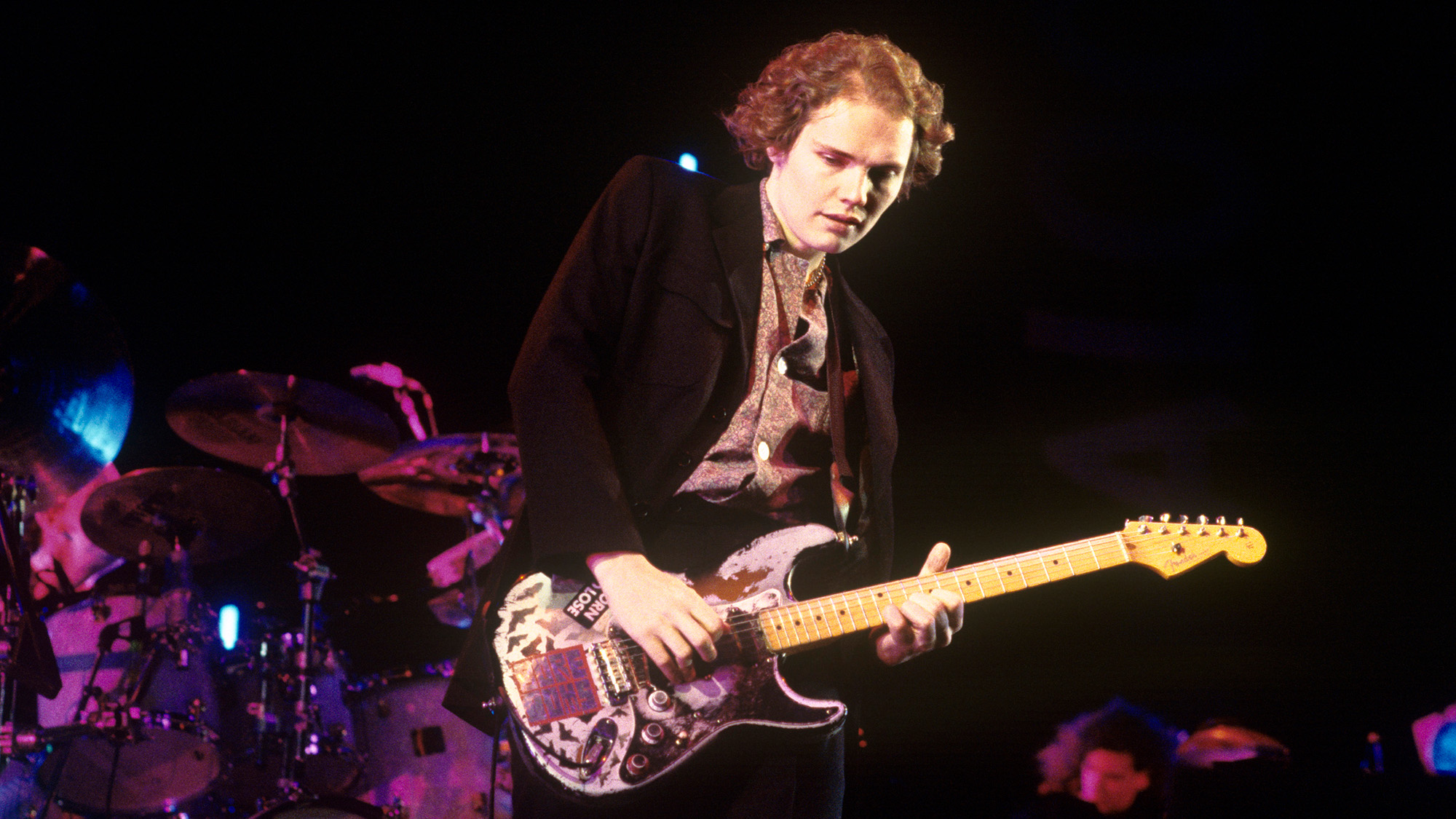Glenn Hughes Talks New Solo Album, Gear and Black Country Communion

Glenn Hughes is an elusive artist with an uncanny ability to jam with Stevie Wonder one night and rock out with Disturbed the next. But perhaps no album showcases the real Glenn Hughes better than Resonate, his first solo album of new material in eight years.
With its groove-oriented, Detroit-style sound, the Rock and Roll Hall of Famer has made the album his fans have been longing for. Tracks like “Heavy,” “Landmines” and “Flow” spotlight Hughes’ limitless swagger, while “Long Time Gone” is acoustic and secretive.
I recently spoke with Hughes about the new album, his gear, Black Country Communion and a some of the more memorable moments of his career.
Resonate is your first solo album in eight years. Why such a long wait?
I’ve written three Black Country Communion albums, a California Breed album and bits and pieces with others artists. As I was recovering from double-knee transplants earlier this year, I was bedridden for a while and wrote this album. But I didn’t go in to write a solo album. I did it for cathartic/therapy reasons. If you know anything about me, you know I’m always writing.
To me, this album is one long song with 12 breaks. It’s a meaningful record because I sing about the human condition and what gets us through. I’m singing about my father’s death and I’m pissed off, but I’m also sensitive and you get to hear that in the tone of my voice in certain songs.
What’s your writing process like?
I love it when people ask me this. Get a visual: I’ve got guitars in every room, and a lot of them are acoustic. The bedroom for me is very sacred, and not just for sleep. I write a lot in there. I’ve got a Gibson by my bed that [Tony] Iommi gave to me in 2005 that I’ve been writing on. I pick the guitar up not knowing, but every time I do and put my hands on the neck, an idea comes to me. It can be a chord, a groove, a riff or even a sound I’ve heard. It gave me the ability to landscape the musicality of what this album is.
You don’t get to hear a lot of major sevenths and minor ninths in my music, but when you add jazz chords and bits and then record and double track them aggressively, it’s incredible.
All the latest guitar news, interviews, lessons, reviews, deals and more, direct to your inbox!
Has your writing changed much over the years?
Sometimes I’ll write music that is influenced by places like Detroit and Georgia. I’m also a big Beach Boys fan and Sixties child. On the song “Flow” there’s a six-part harmony in the midsection, and on “Landmines” there’s a five-part harmony. I wanted to have discourse in my vocals. A clash where people go, what the fuck was that? [laughs].
What can you tell me about the recording process for Resonate?
When I became sober in ’92, I got a place in Stockholm and met many great musicians. But these guys aren’t fucking Vikings. They’re great guys who’ve studied music and are deeply involved in what I do. They understand the dark Glenn, the very emotional, super-charged Glenn and the triad dips and minor ninths. Musicality is super-important.
Let’s discuss the track “Heavy.” How did that one come to be?
For that track I said let’s open the playbook. Let’s go a little Detroit in the verse, a little Australia [AC/DC] in the chorus and a little Liverpool [Beatles] in the vocal. We took risks, but I thought it was best to get out of my own way and show who I am.
You recently had some European dates that had to be rescheduled. What can you tell me about that—and do you have plans to tour the U.S.?
The European tour has been rescheduled and it looks like America will happen sometime in April. I’ve lived in America for 43 years, and just love playing here. It’s my home.
Can you give me an update on Black Country Communion?
Joe [Bonamassa] and I have written all of the music, and I’ve written four songs lyrically and have eight more to go. We’re going into the studio January 3.
Is there a different way you approach writing for BCC as compared to your solo material?
It’s the same way and the same content. I’m a soul singer, man. And these songs are about love, death and survival. About saying hello and saying goodbye. I’m a big believer in the human condition.
What’s your current setup like?
I’m using a whole bunch of Orange right now and have been with them for five years. I’m using the AD200 head and my Glenn Hughes Signature Yamaha bass. It’s the only newly shaped bass they have in their repertoire. It’s a cool-looking bass that’s very light with six extra frets. It sounds like a cross between a Jazz and a P but is very aggressive.
Of all the highlights of your career, are there any that stand out as incredibly special or memorable?
Trapeze. It’s all Trapeze related. I remember we did a tour with the Moody Blues in 1970 and had no record out when we opened for them. On one of these shows in Houston, Texas, the audience went mad. They went mental. So we stuck around in Texas and the next week we headlined and sold out two rather large club shows. Those two venues in Houston, which are no longer with us, are the reason I’m talking to you today.
The Hall of Fame was great and so were the millions of albums I’ve sold. I’m also blessed to be friends with a lot of people you know.
But all of it doesn’t mean anything to me without Trapeze and my brother Mel Galley, may he rest in peace. I was 18 at the time and wrote those songs as a teenager. I knew I was going to be OK at Christmas in 1970. That’s when I said, “I’m fucking home.”

James Wood is a writer, musician and self-proclaimed metalhead who maintains his own website, GoJimmyGo.net. His articles and interviews are written on a variety of topics with passion and humor. You can follow him on Twitter @JimEWood.
James is a guitarist and freelance writer who's interviewed some of the biggest names in music. He is the author of four books and his writing credits include work for Guitar World, AXS and Yahoo! as well as for his hometown newspaper where he writes on a variety of topics with both passion and humor. As a guitarist, he's performed everywhere from local bars and nightclubs to some of the biggest stages in front of thousands of music fans.

